Monument to the Property of Evil, Monument to the Property of Peace, Riki, Rura
Ranginui / Sky
Monument to the Property of Evil and Monument to the Property of Peace
The two towers are reminiscent of "niu" poles that were the totem of the Pai Mārire faith, but also serve as reminders of the stone obelisks that were erected at Petane and Ōmarunui in 1916 by the veterans of the "one day war" and later smashed in the 1990s. Rather than the gravitas of granite, they are clad in wood reminiscent of houses from the period, symbolic of the fact that the "Hauhau" had occupied not a redoubt or fortified position but were in a "papa kāinga", a domestic dwelling unsuitable for defence. As monuments to peace and evil they not remarkably different, reflective of how dichotomies can often look the same depending on one's perspective.
Riki and Rura
The pendent images represent Archangels Michael Riki (Ariki) and Gabriel Rura (Ruler), as punisher and pacifier, that were sometimes carved on the niu cross arms or represented by flags, as the deities of war and peace. Acceptance of the dual nature of man has also been used to explain Panapa's elusive description of the "properties of peace and evil".
Read Graham's statement and a review of the Properties of Peace and Evil exhibition
- previous work
- /
- next work
- (Ranginui / Sky)
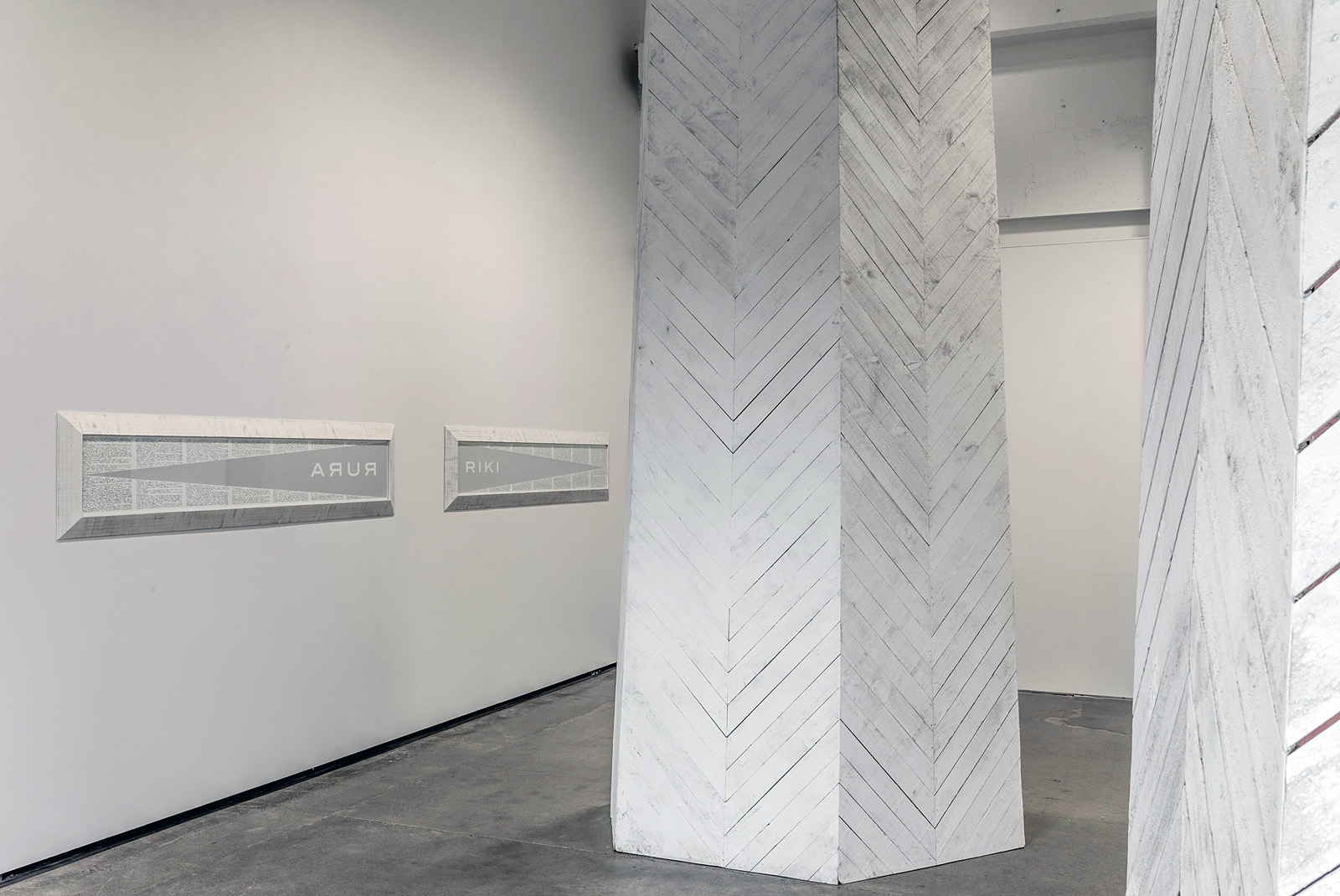
Riki/Rura, Properties of Peace and Evil
2017, installation view
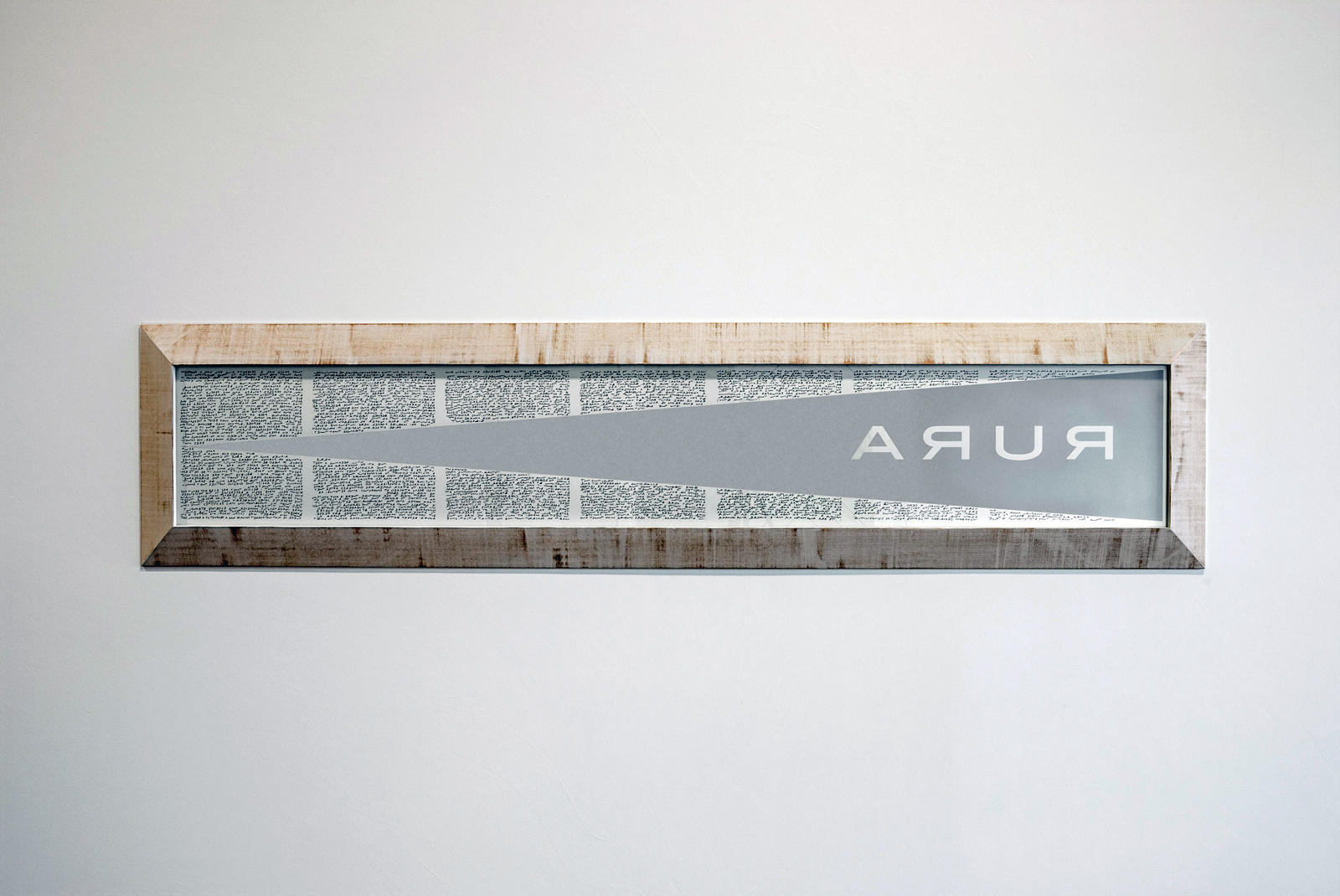
Rura (Inverted)
2017, UV lightfast archival ink on archival paper, 2150 x 480 mm (with frame)
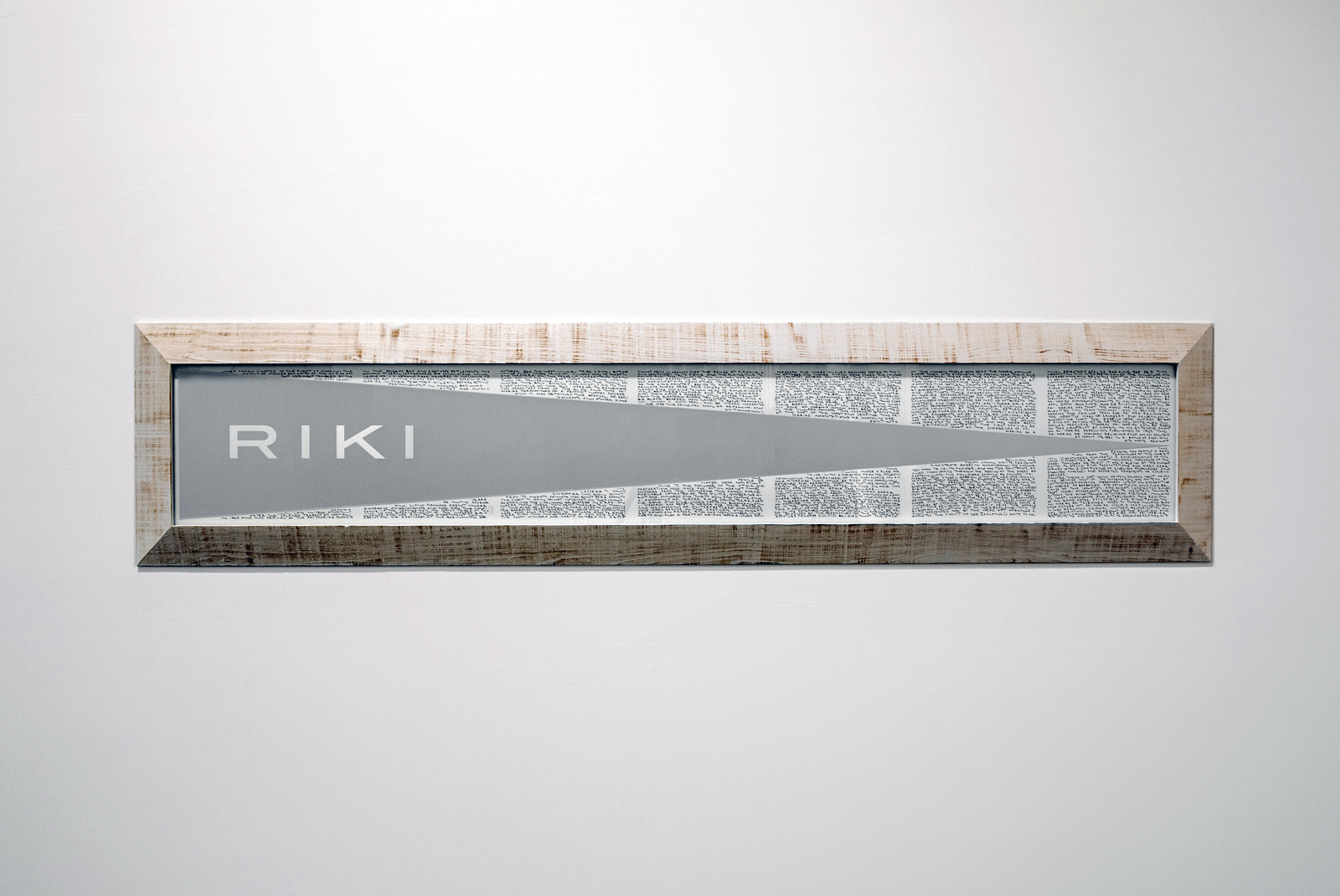
Riki
2017, UV lightfast archival ink on archival paper, 2150 x 480 mm (with frame)
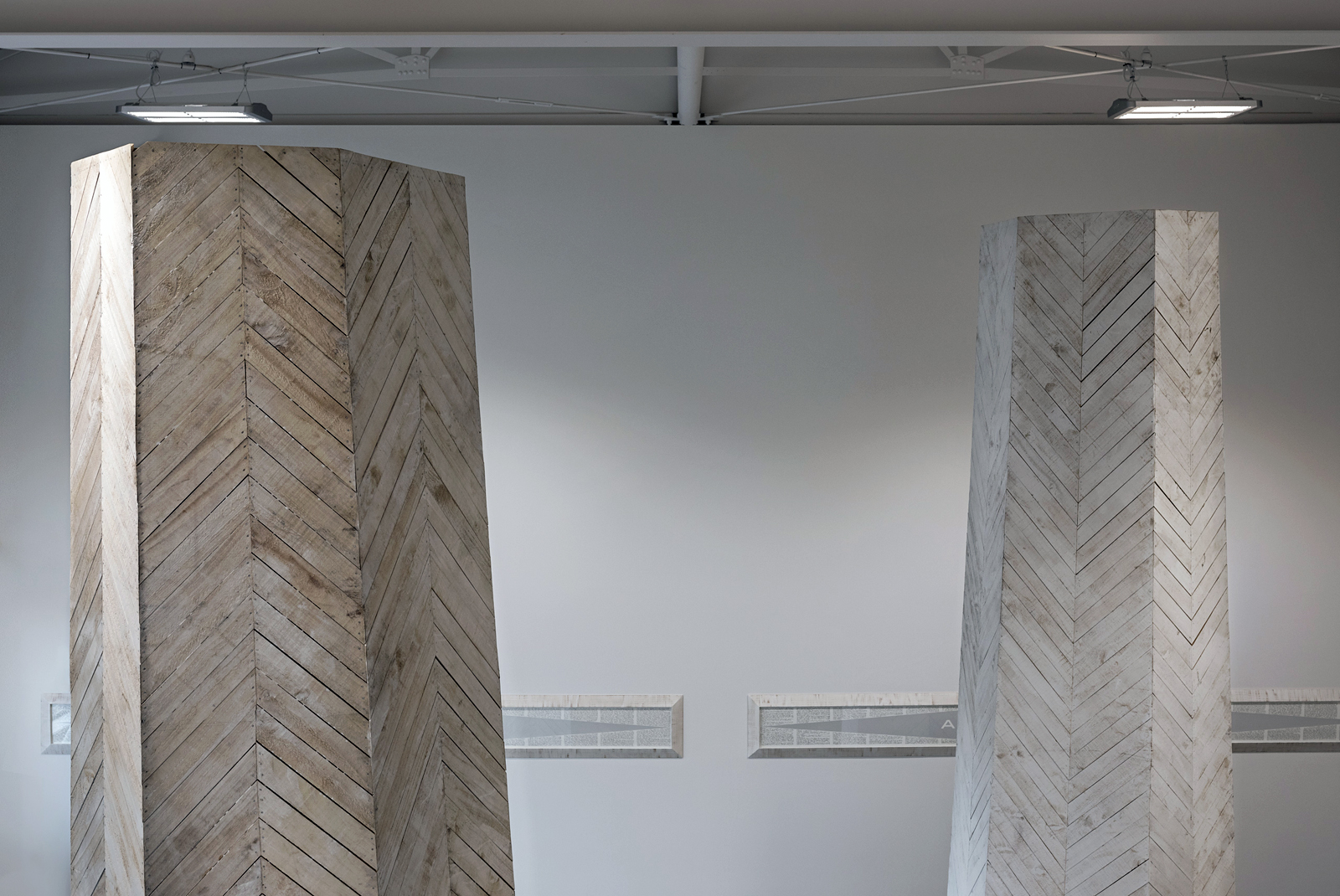
Riki/Rura, Properties of Peace and Evil
2017, installation view
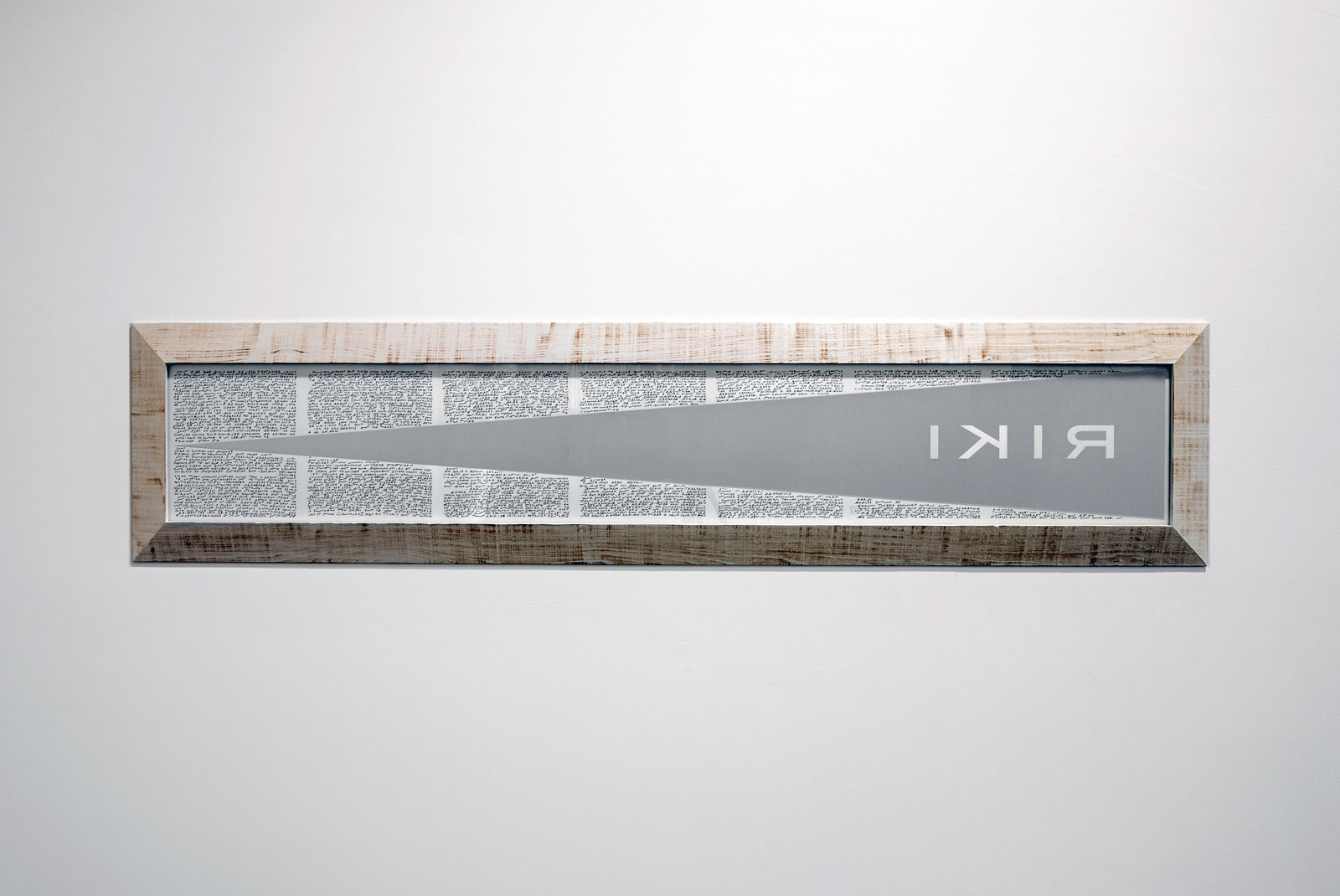
Riki (Inverted)
2017, UV lightfast archival ink on archival paper, 2150 x 480 mm (with frame)
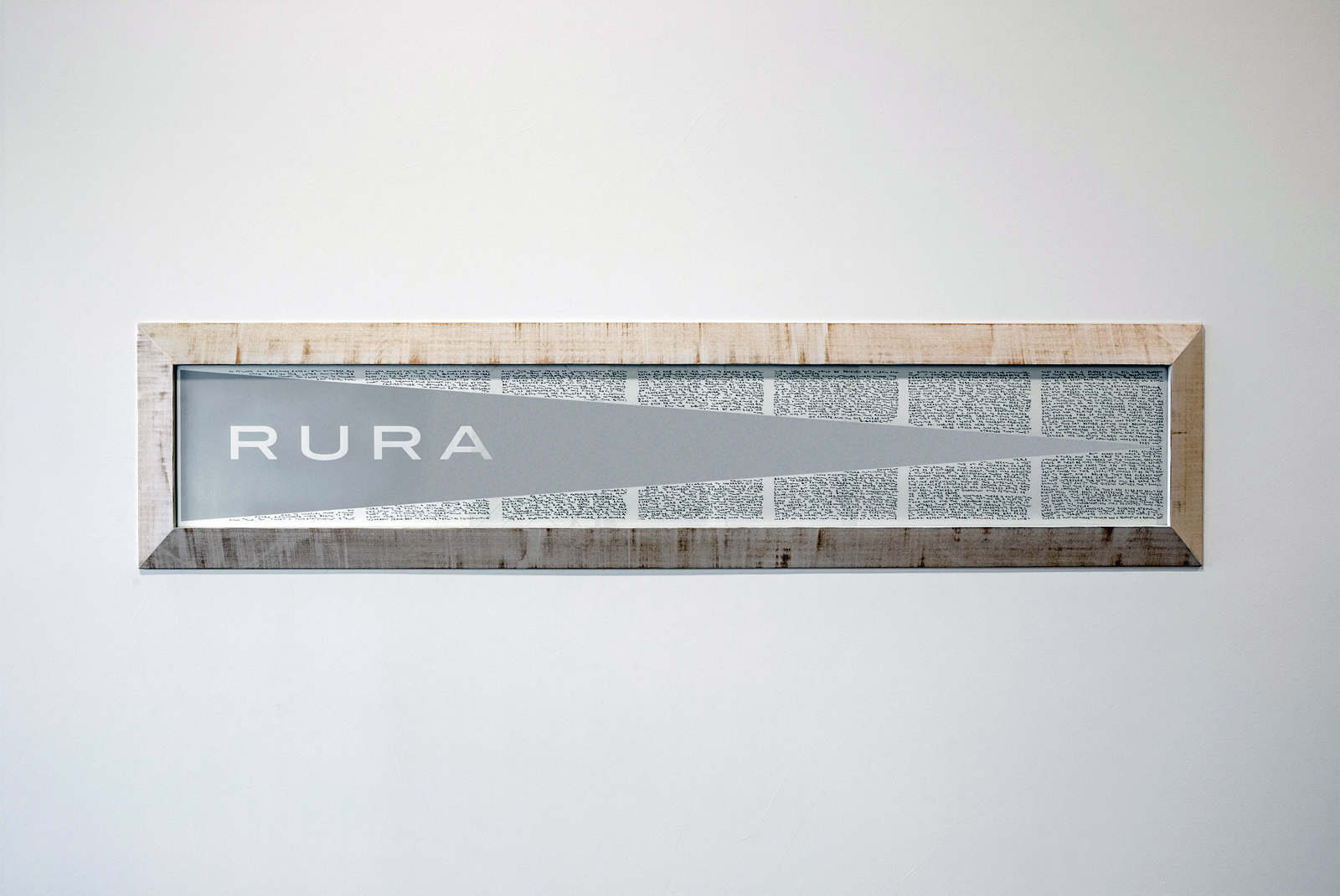
Rura
2017, UV lightfast archival ink on archival paper, 2150 x 480 mm (with frame)